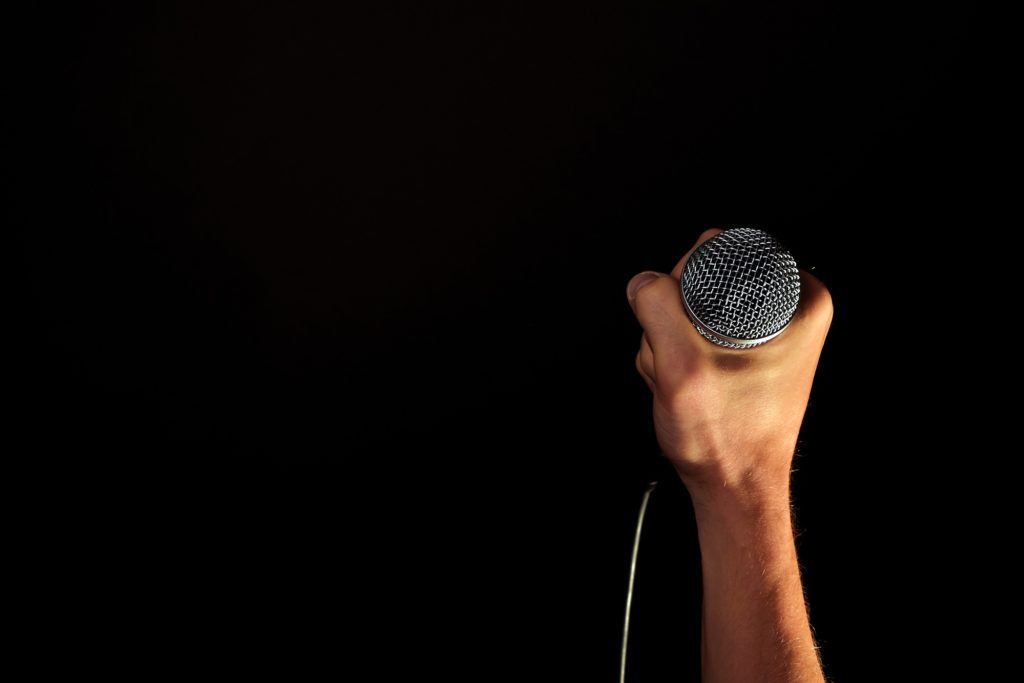Last month, The Stampede included a quote from Thomas Jefferson stating that if he had to choose between a government with no press and the press with no government, he would choose the latter. We agree. As your student-operated news source, we believe that there is power in the press and that it fosters democracy and government accountability.
News, a relatively small word that can hold a lot of power. In the newest age of social media, where news is always at our fingertips, it’s difficult to tell what is and is not accurate. And while news has sometimes been ineffective and destructive (think Stephen Glass), the media has also done amazing things for the American people (think Watergate).
The beauty of our American democracy is that it requires the participation of the citizens within our country. With this participation, citizens have the power to control the government through things like voting, truly making it “for the people.” The power of the people is essential to a democratic government that ensures freedom for all its people. And in order for people to be responsible and powerful, they must be informed.
This is where the press comes in. The creators of the Constitution knew this, which is why freedom of the press is in the very first amendment. It is the media’s job to inform the public of issues going on throughout the world so that the people are able to tell the government officials what they want them to do. The media, in many ways, is considered the “other” branch of government, serving as the people’s watchdog and holding officials, businesses and law enforcement accountable. Without the press, it’s possible that the government and businesses could take advantage of the population by hiding and misrepresenting information.
So, why do we have newspapers, and why do we need journalists? Because being a journalist is a professional career, much like being a doctor in that they both follow an oath or code of ethics. Doctors follow the Hippocratic Oath while journalists follow “The Journalist’s Creed.” We only have a general understanding of our own physical bodies, because we trust doctors are trained to know every detail. Similarly, we tend to have a general understanding of a news story, while journalists — in the bodies of their own stories — attempt to provide us with every detail available. Journalists are able to give us context on a broader spectrum with true facts, so that citizens can come to their own conclusions.
Journalists are held to a high standard. They are expected to be on top of the news and portray it honestly all the time. But we must recognize that there will be mistakes. Journalists are human. And everyone has prejudices and biases. Journalists have to check that by the door everyday, but sometimes biases can slip through. Contrary to popular belief, though, biases within the news media do not mean the facts within stories are wrong. Yes, sometimes biases can push different ideologies on people, but we have enough knowledge at our fingertips that we are able to see the truth.
Unfortunately, the public’s trust in the press is being disintegrated by false statements made by those in top positions of political power. They hope people will blindly believe what they say — regardless of the true facts and evidence shown in the media — in the hopes of creating a rallying point for their agenda.
For example, earlier this year, the White House released a list of 78 terror incidents that it said the press either hardly covered or did not cover at all. But some of those events had received universal press coverage, such as the Paris attacks and the Florida nightclub shooting. Only one incident listed supported the claims — when in April 2015 a man named Nerdin Ibric killed one police officer and wounded two others in Zvornik, Bosnia — but, even then, the incident did garner wide press attention, it was just mostly in Europe.
In conclusion, the Stampede Staff would like to say the attack on the press is not a partisan issue. The press is essential for a responsible society to make well-informed decisions about their governments. It’s essential to the freedom of all peoples. The press, though it does have its issues, should not be discredited, as doing so would be removing a huge check on the big powers in America.
What do we recommend you do to combat people who discredit the media?
- Stand up for it. Recognize that though the media comes with biases, real news is always based on factual evidence.
- Learn about why people think differently than you. You don’t have to change your opinion; just simply seek to understand why people think a certain way.
- Read/watch multiple news sources (preferably from two different points of view), and check sources in order to come to your own conclusions.
By doing these things, you will be able to use the media effectively in the ways it should be used.

